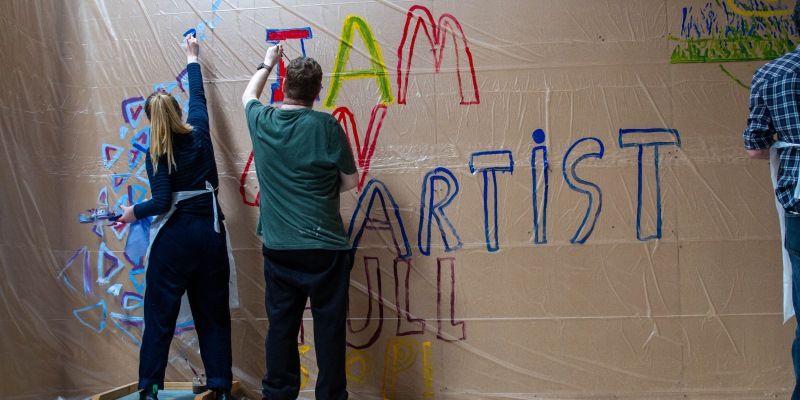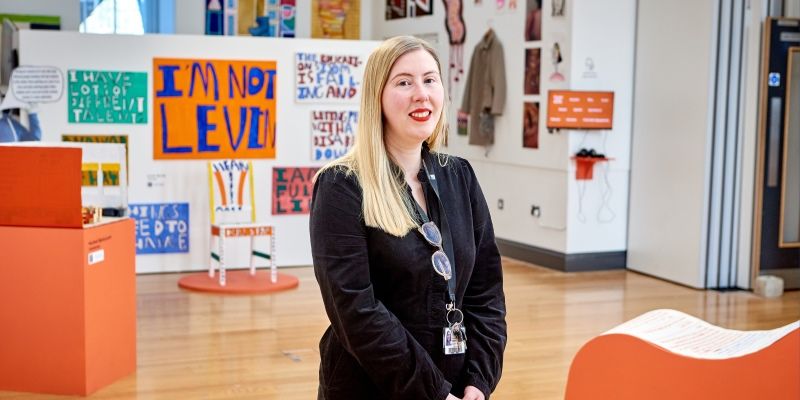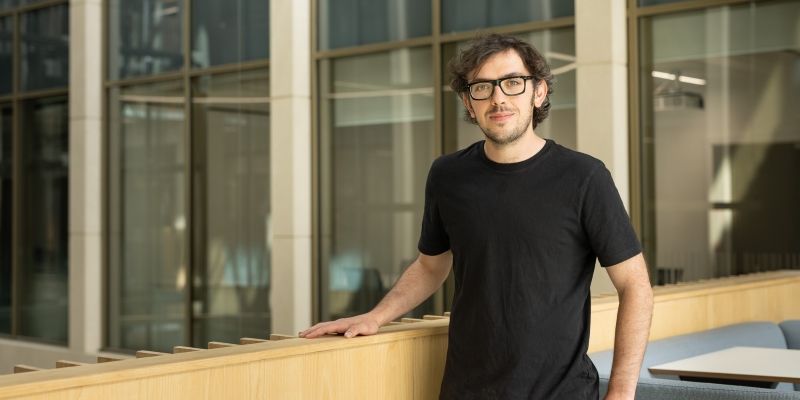
Two of Leeds' most promising research leaders have earned national fellowships to advance their work aimed at tackling global challenges.
Dr Jade French and Dr C. Scott Watson have received Future Leaders Fellowships, funded by UK Research and Innovation (UKRI). The fellowships enable universities and businesses to develop the next generation of world-class researchers and innovators.
Jade and Scott are among 68 individuals awarded fellowships this month, with total funding of £104 million. This takes the total number of Future Leaders at Leeds to 23.
Professor Nick Plant, Deputy Vice-Chancellor: Research and Innovation at the University of Leeds, said: “These richly deserved Fellowships will underpin the pioneering and vital projects being led by Jade and Scott.
“Their work serves to underline the incredible talent we have within our University research community, which is helping to address some of the biggest challenges faced by the planet and its people.
“With the backing of these Future Leaders Fellowships, we look forward to seeing Jade and Scott realise the full potential of their projects and demonstrate the very best in UK research and innovation.”
Dr Jade French

Dr Jade French from the School of Fine Art, History of Art and Cultural Studies leads the project ‘Inclusive Art for Wicked Problems’.
Working in collaboration with Leeds-based inclusive arts studio Pyramid, Jade’s fellowship will enable an innovative application of inclusive arts to action research that mobilises the expertise and creativity of learning disabled people across the challenges of the social care system.
It includes work with three UK-based inclusive arts organisations, as well as an international collaboration with partners in Brazil – Dr Viviane Sarraf and the São Paulo Museum of Modern Art – to establish the city's first inclusive art studio with learning disabled citizens.
The project's areas of interest include service commissioning, flexibility of care and support, the issuing of ‘Do Not Resuscitate’ Orders during COVID-19, employment, independent living and access to Higher Education.
Dr French explains: “Learning disabled people have been long overlooked as research leaders and innovators. My fellowship will test a distributed leadership approach, exploring how varieties of expertise, agenda setting and decisions can be shared amongst the many, and not the few, using creative and collaborative approaches generated through inclusive arts practice.”
Dr C. Scott Watson

Dr C. Scott Watson will lead the project ‘Glacial Lake Observatory for Flood Hazards Impacted by Changing Climate’ in the School of Geography.
As glaciers disappear, thousands of glacial lakes are forming. Yet their location in high-altitude and logistically challenging environments means observations are sparse, including essential measurements of water storage and potential hazard.
This fellowship will investigate lake development processes and glacier-related flood hazards to enhance disaster preparedness and increase water security across High-Mountain Asia. The project will integrate satellite data, numerical modelling, and fieldwork to provide the foundations for systematic and open access glacial lake monitoring.
Scott said: “This project will transform how we understand and prepare for glacial lake evolution and flood risk, and how we predict future water availability in high mountain environments.
“The Future Leaders Fellowship gives me a fantastic opportunity to develop a global Glacial Lake Observatory, that will underpin a new era of collaborative glacial lake research by removing barriers to data access and knowledge exchange.
“I will be supported to lead a team to address this global challenge and work with a breadth of project partners to maximise the benefits of our research.”
Bridging the gap
UKRI Chief Executive, Professor Dame Ottoline Leyser, said: “UKRI’s Future Leaders Fellowships provide researchers and innovators with long-term support and training to develop ambitious, transformative ideas.
“The programme supports the research and innovation leaders of the future to transcend disciplinary and sector boundaries, bridging the gap between academia and business.”
Future Leaders revisited

Dr Richard Mandle, from the School of Physics and Astronomy, was awarded a UKRI Future Leaders Fellowship in 2022 for his £1.5m project “A New Order of Liquids”.
This ambitious piece of work combines chemistry and physics, both experiment and theory, to develop fluid ferroelectric materials.
Dr Mandle is the corresponding author on the paper Spontaneous Symmetry Breaking in Polar Fluids, published in Nature Communications this month.
It describes his discovery of two previously unknown states of matter, one of which spontaneously “breaks” mirror symmetry, evolving into a helical structure which has the rare quality of selectively reflecting light, in a similar way to that of the iridescent wings of butterflies or shimmering exoskeleton of a beetle.
The University of Leeds is a world-leader in this kind of research. Dr Mandle previously worked on auxetic liquid crystalline elastomers, which led to the formation of spin-out company Auxetec, to develop a ground-breaking material that gets thicker when stretched.
Further information
For additional information contact Richard Abbott in the University of Leeds press office.
Jade French photograph by Victor De Jesus. Fieldwork photograph by Louis Wong.